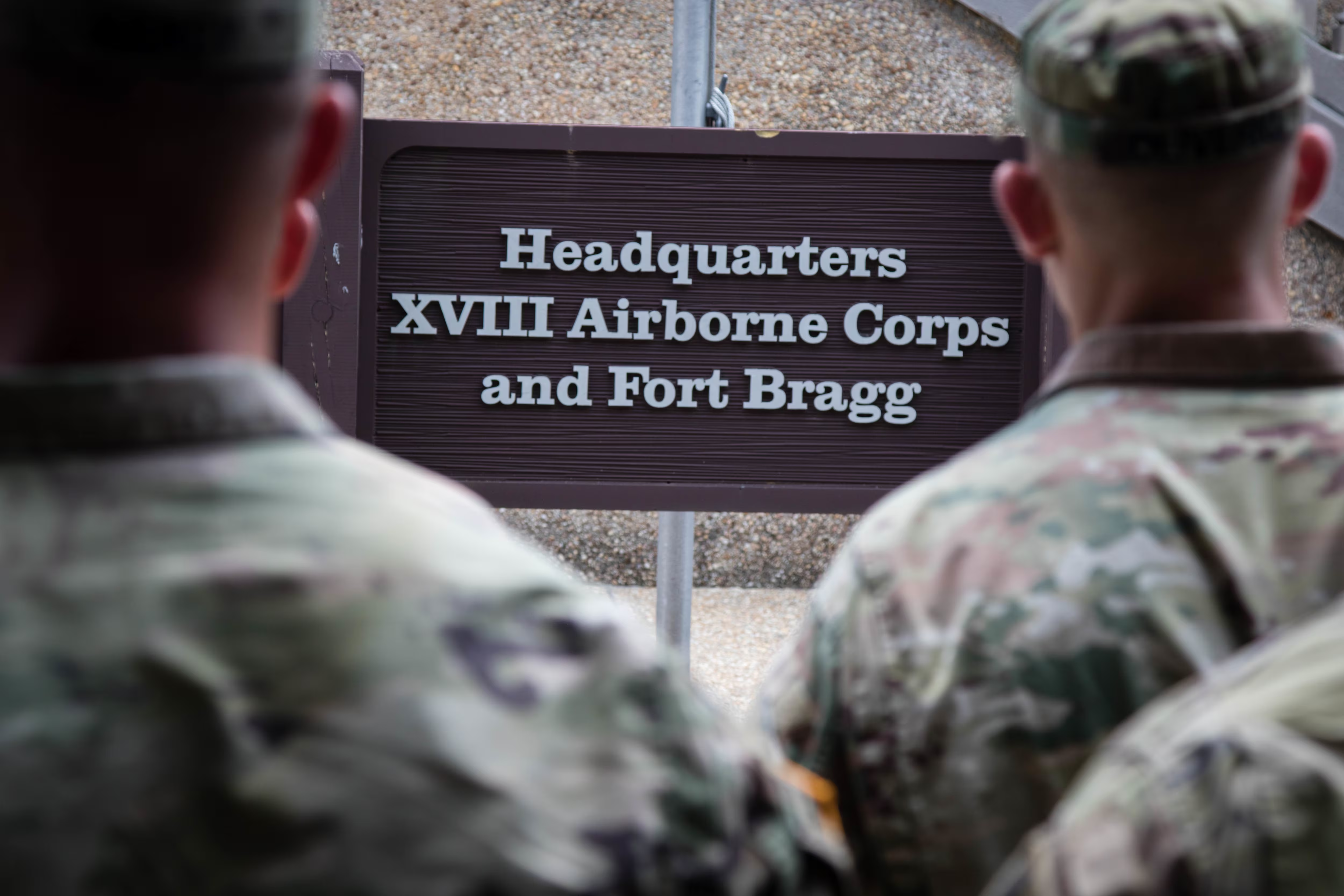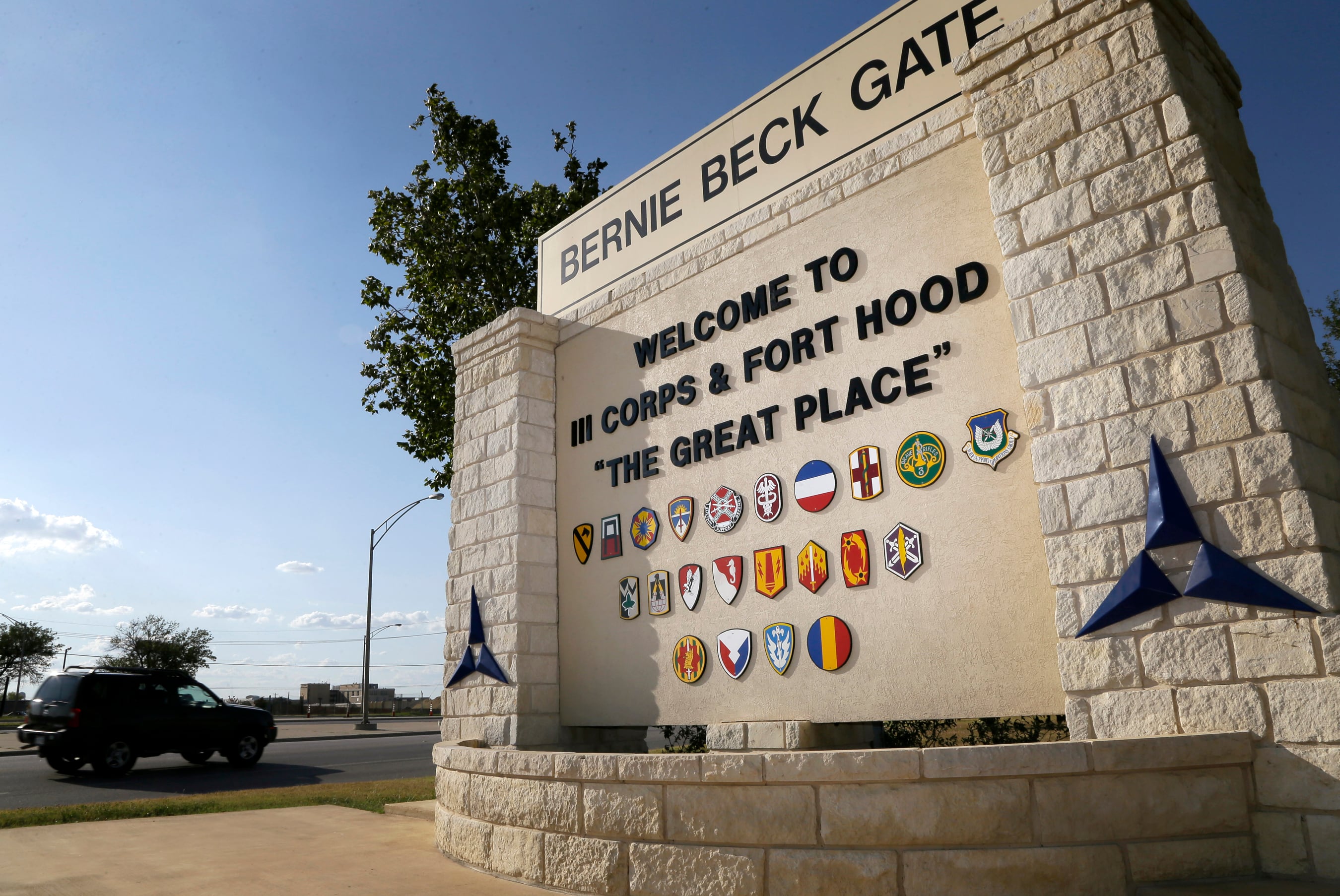Hours after the president announced he would block all efforts to remove the names of Confederate leaders from prominent U.S. military bases, lawmakers in the House and Senate both pushed to force defense leaders to make the changes anyway, calling it an issue of respect and inclusivity.
On Thursday morning, Reps. Anthony Brown, D-Md., and Don Bacon, R-Neb. — both military veterans — introduced new legislation to rename any current military installations honoring leaders of the Confederacy within a year.
“The symbols and individuals that our military honors matter,” Brown said in a statement. “It matters to the black soldier serving at an installation honoring the name of a leader who fought to preserve slavery and oppression. It matters to the culture of inclusivity and unity needed for our military to get the job done.”
RELATED

Similarly, on Wednesday members of the Senate Armed Services Committee included in their draft of the annual defense authorization bill language to strip the controversial names from bases within the next three years, after a commission review into potential replacements.
At issue are at least 10 Army bases named for prominent military leaders of the Confederacy during the Civil War, including Fort Bragg in North Carolina, Fort Hood in Texas, and Fort Benning in Georgia. Other buildings and locations at other military installations also bear the names of prominent Confederate figures.
Advocates for years have unsuccessfully pushed military leaders to remove the names, saying the decision to honor individuals who fought to preserve slavery and secede from the United States insults both minority service members and the country as a whole.
On Wednesday, just a day after Pentagon leaders indicated they may be open to renaming some sites if there was bipartisan support for the effort, President Donald Trump announced that his administration “will not even consider the renaming of these magnificent and fabled military installations,” calling such a plan disrespectful to U.S. troops who died in overseas wars.
“Our history as the greatest nation in the World will not be tampered with,” he wrote on social media. “Respect our military!”
Later, White House press secretary Kayleigh McEnany said the president “will not be signing legislation that renames America's forts.”
RELATED

That sets up a potential legislative showdown after the issue’s inclusion in the Senate defense authorization bill draft.
The massive budget policy bill includes hundreds of military policy provisions, including setting the military pay raise for next year, increasing military end strength and outlining funding priorities for billions in defense equipment spending.
On Thursday, Senate Armed Services Committee Chairman Jim Inhofe, R-Okla., said he voted against including the issue during a closed-door session, but was overruled by a majority of members. Unlike its House counterpart, the Senate panel is controlled by Republicans, meaning at least one had to support the idea for it to pass.
RELATED

Inhofe said he wants states to have input — and possibly veto power — on any name changes, and expressed confidence that the issue will be “worked out” before the bill heads to conference with House members. He would not clarify if that meant removing the provision when the measure comes to the full Senate for a vote.
If House lawmakers include identical language in their draft of the authorization bill — work that is scheduled to take place later this week — then the issue will be considered “locked” as negotiations on a final legislative package occurs in coming months.
That would force the president to follow through on the veto threat and jeopardize a host of military priorities or sign the bill and go back on his public vow.
Navy and Marine Corps leaders in recent days have announced a ban on confederate flags and paraphernalia among service members in response to public criticism about the symbols. The Army is also reviewing the issue.
Leo covers Congress, Veterans Affairs and the White House for Military Times. He has covered Washington, D.C. since 2004, focusing on military personnel and veterans policies. His work has earned numerous honors, including a 2009 Polk award, a 2010 National Headliner Award, the IAVA Leadership in Journalism award and the VFW News Media award.




